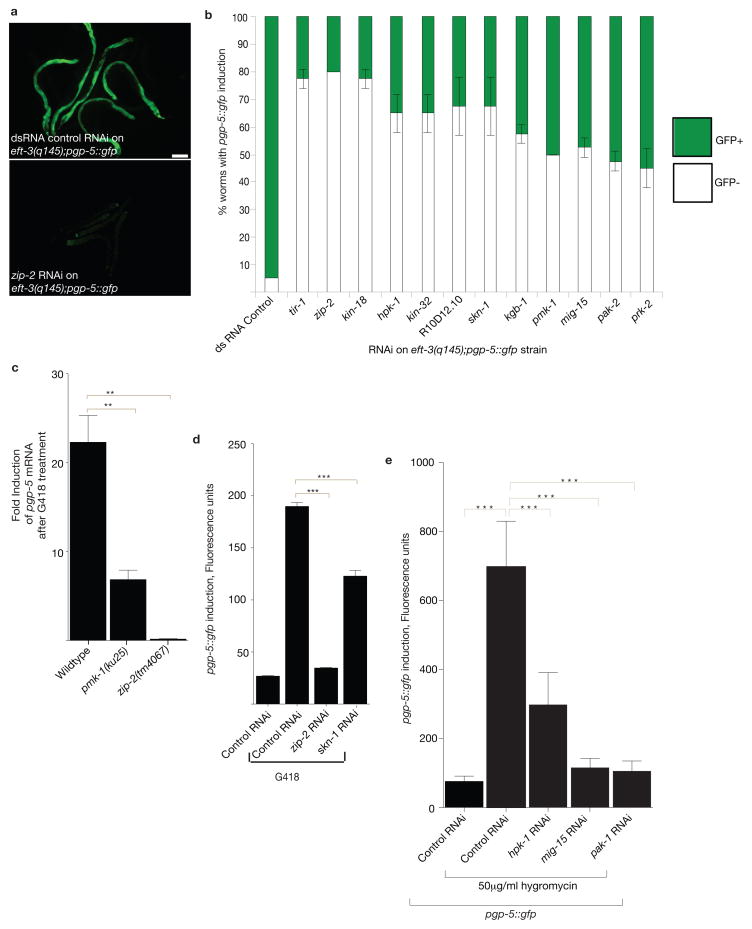Figure 3. p38 MAPK signaling and zip-2–bZIP transcription factor are required for translation-inhibition-induced xenobiotic defense response.
A) RNAi of the zip-2–bZIP transcription factor gene disrupts the induction of pgp-5::gfp in response to germline translation defects in eft-3(q145);pgp-5::gfp. Scale bar, 50μm.
B) Kinase and transcription factor gene inactivations that disrupt pgp-5::gfp induction in response to germline translation defects in the eft-3(q145);pgp-5::gfp strain. n=60 worms. Mean ± s.d. n is consolidated from three independent experiments.
C) p38–pmk-1 and zip-2 are required for G418 induction of pgp-5 mRNA as assessed by qRT-PCR. Fold change compared to no drug wildtype animals. One-way ANOVA; **P<0.01. ~300 worms per condition were washed off 1 plate for each experiment. Mean ± s.d from n=3 independent experiments is shown.
D) zip-2 and skn-1 transcription factors are required for G418-induced pgp-5::gfp expression. Fluorescence was measured using a COPAS Biosort. Statistical significance was determined using one-way ANOVA. ***P<0.001. Mean ± s.e.m of n=400 worms for control RNAi and n=399, 563, and 99 worms, respectively for G418 in combination with dsRNA control, zip-2 RNAi and skn-1 RNAi treatments. Data was consolidated from two independent experiments.
E) hpk-1,mig-15,and pak-1 are required for hygromycin-induced induction of pgp-5::gfp. One-way ANOVA; ***P<0.001. Mean ± s.d. of n=136 worms for control RNAi and n=397, 268,123, 143 worms respectively for hygromycin treatment in combination with control RNAi, hpk-1 RNAi, mig-15 RNAi and pak-1 RNAi. Data was consolidated from two independent experiments.

